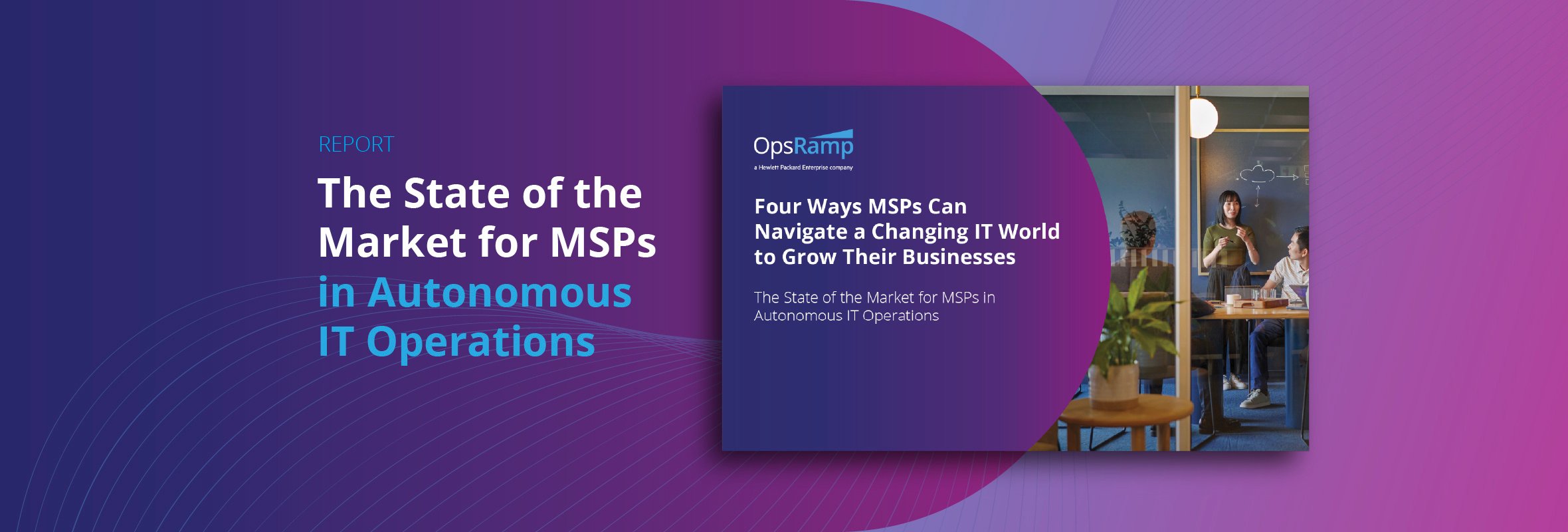Organizations have doubled down on remote working, digital transformation, and cloud adoption to cope with the sudden onset of a global pandemic. An S&P Global survey in March 2020 found that 41% of enterprises were already “experiencing increased strain on internal IT resources” due to the coronavirus outbreak. To keep up with stakeholder demands and ensure their business-critical services are up and running at all times, IT operations teams are turning to managed service providers (MSPs).
Datto’s 2019 State of the MSP Report found that more than “80% of MSPs gain a part of their revenues from recurring services.” Enterprises are likely to keep working with their MSP partners as they offer the following benefits:
- Cost-effective. It can be expensive for many organizations to hire and maintain technology staff to run their IT operations. Working with MSPs offers access to the right resources that can make IT expenditure predictable.
- Technical expertise. MSPs can help rapidly deploy new technologies and provide the necessary resources to kickstart new business initiatives. NTT’s 2020 Global Managed Services Report found that “technical expertise is the number one driver for service provider selection.”
- Core competencies. Enterprises can stay focused on their core business and not get distracted by the complexities of managing IT by using service providers.
- Proactive support. Organizations opt for managed services to ensure reliable IT operations and to avoid overworking their IT staff with break/fix activities.
In our recent Tech Talk, ‘Managed Service Providers Need to Ramp Up Now’, OpsRamp’s Paul Bates and Eric Cook spoke about the challenges MSPs face today and how they can exceed customer expectations in the current economic environment.
Top challenges for Managed Service Providers
A recent IPED Consulting survey found that providers believe that the “COVID-19 pandemic will represent an inflection point for the channel on par with the arrival of cloud computing and the 2008 recession.” While service providers will see higher demand for their services, they will also need to address specific challenges including more workloads from hybrid and multi-cloud environments; shifting buying centers with greater influence from C-level executives, departmental heads, and developers; and higher security risks. Beazley’s Breach Insights 2019 study found that 24% of ransomware incidents stemmed from an organization’s technology vendor or its MSP.
How MSPs can win
Managed service providers will need to invest in outstanding talent, agile processes, and modern tools to build customer confidence and loyalty. Here are some ways that service providers can get ahead:
- Drive centralized visibility. The adoption of standalone monitoring tools has made it difficult to understand the health and performance of distributed IT services. Managed service providers need to consolidate operational insights with a single pane of glass that delivers one source of truth across multiple customers, technologies and tools.
- Embrace automation. MSPs can help their service delivery teams focus on strategic initiatives with automation that can handle routine tasks like incident routing and patch management.
- Enable innovation. MSPs can help customers gain market share and build customer intimacy by playing the role of innovation enablers, “delivering expertise in strategic areas such as cloud orchestration, intelligent automation, and platform modernization.”
- Ensure secure operations. With more remote work, MSPs need to partner with customers to prevent security breaches. Service providers will need to ramp up on IT policy management and automated patching to ensure better security.
OpsRamp’s Partner Program is ideal for service providers looking to expand their customer footprint, organizational profitability, and market share with innovative solutions. Check out our Tech Talk by accessing the webinar slides below or by watching the on-demand session to learn more about how OpsRamp can help MSPs. Next week we’ll be diving deeper into specific OpsRamp platform IT operations management (ITOM) features for MSPs. Check out all of our Tech Talks here.






